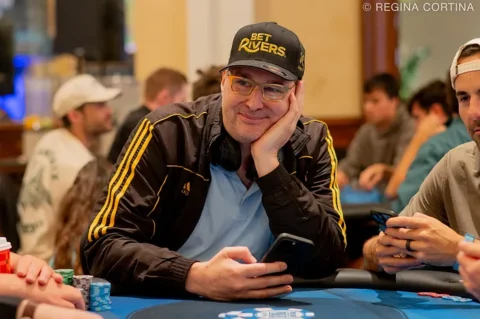Poker and slot games are among the most favored recreational gambling pastimes across the globe. While both present opportunities of winning a hefty prize, they differ greatly in their style of play, strategy, and player engagement.
Texas Hold’em is one of the most popular poker games. It is a card game with a mixture of skill, psychology, and strategy. Each player receives two private cards (holes), and five community cards are dealt face up.
Players must try and make the best hand possible with a combination of the hole cards and community cards. The round of betting culminates in a showdown where the winning player takes the pot. If all other players fold, the last remaining player takes the pot.
Slot games, on the other hand, are more straightforward and mostly focus on luck. Players are greeted by reels with a range of symbols, and their aim is to spin and match them in certain patterns. Most modern video slots come with numerous paylines, wilds, scatters, and even bonus rounds. Many slot games also come with progressive jackpots – a type of payout that increases as people play the game.
While both games have their unique forms of enjoyment and opportunities to win, they greatly differ in terms of complexity and how much control a player has over the outcome. In real money casinos, both poker and slots attract players who are hoping for a rewarding gaming experience, but their gameplay experiences differ markedly.
Key Strategies for Success in Poker
Poker is perceived as a skill game since players’ decisions can change the outcome of the game. Even though chance plays a role, seasoned players make it a point to take advantage of every strategic option available, fail to read their opponents’ body language, or calculate their chances and logic in gameplay.
Choosing a Starting Hand: One of the first things to do is select a hand, and therefore starting with premium hands such as pocket aces (AA) or kings (KK) places a player in a better winning probability scenario.
Starting with weaker hands, like low unsuited cards, is likely to decrease a player’s chance of winning. Minimizing the risk of losing by strong hands at the onset reduces the chances of losing by playing the potent hands.
Active Participation and Positioning: A slot that a player occupies at the table is associated with the class of the poker strategy, and plays a pivotal part in the success of poker targets. The active players do play, and the slot players have an edge. Players positioned in the latter slots must use their knowledge. Loss performing these can convert strong tools of manipulation into winning hands.
Bluffing and Semi-Bluffing: Bluffing is a fundamental aspect of poker strategy. It is the act of making your opponents believe that you are in a better position with a stronger hand than you are, just so they can fold.
Semi-bluffing is when a player makes a bet on a hand that has a chance of improving, and is also a good technique. For instance, betting on a flush or straight draw might lead one’s opponents to believe that the player already holds a stronger hand.
Pot Odds and Expected Value: Pot odds are a very important factor in poker. This is the relation between the size of the pot and the amount of money you will spend to make a certain call. It would be worth the call if the potential reward justified the cost.
The expected value (EV) helps determine whether taking a particular action will be beneficial in the long term, depending on how likely different outcomes are to occur.
Reading Opponents: Being able to read an opponent’s betting patterns, timing, and method of playing is one of the fundamental skills in poker. These actions can give very useful hints of the strength of an opponent’s hand and inform the player’s actions. Players can make better decisions regarding the actions they plan to take by observing the set patterns of their opponents.
How Slot Games Differ from Poker
Although poker and slot games are an integral part of gambling, they have some fundamental differences.
Element of Skill vs. Pure Chance
Poker falls into the category of skill-based games because players’ actions will influence the result. The bet amount, how favorable the player’s hand is, guessing other players’ moves, and many other factors can determine whether the player wins or loses. A skilled player has an unmatched advantage over the rest because of strategy, psychology, and probability.
In contrast, slot games are entirely games of chance. The result of every spin is decided by a random number generator (RNG), and there is no way to alter this with external factors. While some players may believe adjusting their bet size according to a certain bankroll alters the outcome, these actions do not change the results of the game. There are no predictions or alterations that can be made to slot machines because they are entirely dependent on luck.
Pacing and Engagement
In comparison to other card games, poker has a relatively slower pace, especially when played live. Players take longer to analyze each decision and evaluate their next course of action. This slower rhythm permits deeper mental immersion in the game and provides the ability to strategize and devise long-term plans.
Slot games offer a much different tempo. Players spin and progress is made in an almost real-time rate without pauses between rounds. These fast-paced conditions, along with the chance for big wins, can make slot games particularly cool. However, contrary to the aforementioned aids, they provide less time for them to deliberate.
Social and Competitive Elements
Competition is a core pillar of poker. Players are constantly putting their minds against each other. The social aspect of the game is undeniably a huge driver of popularity. Poker has a social aspect, whether it’s casual home games or professional tournaments, which involves reading opponents, establishing a reputation, and adapting strategies to the ever-changing dynamics of the table.
As with all slot games, there is no competitive aspect to match against. Players face off only against the machine. Although many players use slots for entertainment purposes, the experience is not as interactive as playing poker. Rather, it is more about personal enjoyment, especially when the progressive jackpots or bonus rounds are featured.














